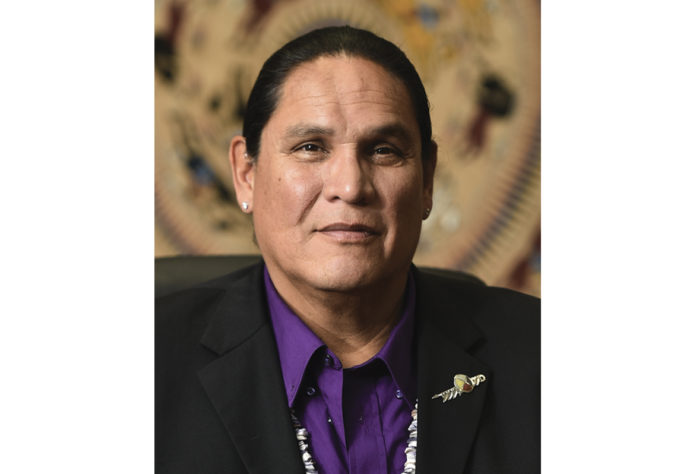by Ernest L. Stevens, Jr.
The Indian gaming industry looks forward to participating in the vital gaming policy discussions and review of the latest that our industry has to offer at the Global Gaming Expo 2023 in October. However, in September, Indian Country is forced to focus on Congress as the deadline to enact federal funding for government agencies and programs rapidly approaches.
When Congress returned from a six-week summer “district work period” it had eleven legislative working days to reach agreement on Fiscal Year 2024 funding by midnight on September 30, 2023 – among other crucial deadlines. Few expect the House and Senate to reach final agreement by the deadline, but instead of acknowledging the need to pass a short-term continuing resolution, some hardliners are welcoming a government shutdown.
One member of Congress recently stated that “we should not fear a government shutdown. Most American people won’t even miss it if the government is shut down temporarily.”
It’s no surprise that this member does not represent Indian Country. But it is surprising that someone who claims to fight debts and deficits would flippantly embrace a shutdown knowing that the last disastrous government shutdown cost American taxpayers more than $11 billion. The damage and lasting impacts on local economies throughout Indian Country was many times worse.
While some may view a government shutdown as a minor inconvenience, prior shutdowns have devastated tribal government economies. In December of 2018, the prior Administration and Congress mindlessly waded into a 35-day shutdown that endangered lives and property on tribal lands, burdening those most in need. It was beyond unjust to permit Native children, elders, and individuals with disabilities to serve as collateral damage over partisan politics.
Tribal governments ceded hundreds of millions of acres of our homelands to help build this Nation. In return, the federal government promised to provide for the health, education, public safety, and general care of reservation residents – while also protecting and preserving tribal sovereignty on remaining Indian lands. Annual funding for programs and services administered by the Bureau of Indian Affairs, the Indian Health Service, and other federal agencies represent the government’s most basic attempt to meet these solemn obligations.
Our communities rely on federal funding to administer basic tribal government services, including health care, education, public safety, housing, nutrition and food distribution programs, and social services. Shutdowns destabilize these programs and cause fear and anxiety throughout Native communities.
During past government shutdowns, thousands of federal employees, many of whom are tribal citizens, were furloughed or working without pay for weeks. The results crippled the finances of families throughout Indian Country. The uncertainty of a shutdown also compounds the challenges tribes face recruiting and retaining professionals to work on Indian lands. No one is willing to consider moving to or investing on Indian lands knowing that their very source of employment could be placed in jeopardy on what is growing to be an annual occurrence.
But a shutdown is not inevitable. The two chambers in Congress are currently walking divergent paths. The U.S. Senate is walking the path of compromise. For the first time in more than a decade, the Senate Appropriations Committee passed all twelve federal funding bills ahead of the August recess – all by wide bipartisan margins.
The U.S. House of Representatives, however, is walking a much different path. The House Appropriations Committee has passed 10 of the 12 funding bills all along party-line votes with no bipartisan support. Indian Country applauds the work of the House Interior Appropriations Subcommittee for protecting tribal government programs and services in its version of the FY’24 bill that sets funding levels for critical programs at the Bureau of Indian Affairs, Indian Health Service, and Indian Education. However, the House-passed funding bills overall cut spending below the caps agreed on in the June 2023 debt ceiling agreement and include divisive culture war riders that will be rejected in the Senate and which President Biden has already threatened to veto. These same policy riders have already bogged down the usually bipartisan National Defense Authorization Act, the 2023 Farm Bill negotiations, and other must-pass measures.
House hardliners proclaim that the spending battle and divisive riders reflect “what the American people elected us to do.” This statement ignores political reality and the fact that the American people elected divided government. Republicans control the U.S. House of Representative. Democrats control the Senate and the White House. As a result, no one will get everything they want. Compromise is the only path forward.
Disfunction cannot be the default in Congress. The question is when the extremes in both parties will relent and how much pain and suffering are they willing to inflict on their own constituents. There is no upside to a federal government shutdown. America loses.
Ernest L. Stevens, Jr. is Chairman of the Indian Gaming Association. He can be reached by calling (202) 546-7711 or visit www.indiangaming.org.















































